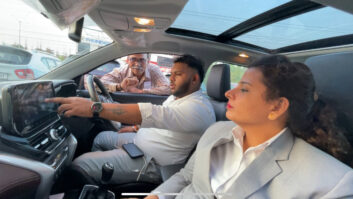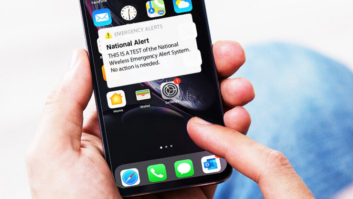The author is membership program director of the National Federation of Community Broadcasters. NFCB commentaries are featured regularly at www.radioworld.com.
As stations seek to crack the code of an effective podcast, one of the most perplexing questions may finally get more clarity.
Many community radio stations are engaged in podcasting. A few take it a step further and offer training to aspiring podcasters. Radio Boise, for example, kicks off its Voices Project in February. The upcoming Community Media Conference will bring together stations such as KPOV that are navigating the podcast space. However, the matter of content remains largely open. That may be for better or worse.
For those of us in radio, who often think of content clocks in relation to our grids and that 168 hours each week we need to be mindful about, the length of a podcast may correspond to the units of measure with which we are most accustomed. Even though that number may not reflect emerging listening habits — more on that shortly — you radio folks have a far better handle on the public’s patience and attention span than many other people producing audio and/or podcasting.
[Read: Community Broadcaster — Going Beyond]
The length of time for content is one such issue with which everyone must contend. If you dip your toe into the content conversation online, you are certain to get a lot of very abstract answers to concrete queries. No question gets more general a response than, “How long should my podcast be?”
A common, though opaquely self-indulgent, refrain is, “as long as you need” or worse, “as long as it is interesting.” Interesting, to whom? Few things in radio are more insufferable than a segment that audibly has gone on too long and feels like someone is stretching to fill time. The cringeworthy interview that illuminates little but occupies a lot of time is the last memory so many of us have of particular programs, podcasts and radio stations. Of course, there certainly are those willing to overlook listening to this kind of radio during a commute.
But when someone has purposefully chosen to listen by seeking out and streaming or downloading a podcast and then is punished with overlong talk during said podcast. That’s simply not as forgivable. Regardless of whether you are a seasoned radio veteran or a freshly minted podcaster coming straight out of the dining room studio, content in whatever its format is still all about the audience and their time.

Should your community radio station be considering a podcast, new reports may inform your adventure moreso than ever before.
In early January, the Wall Street Journal noted podcast audiences say they are more besieged than ever by content choices. Ultimately this is not a shock. Many of us are distracted by email on our phones, text notifications, blinking lights for Instagram and Facebook, buzzes for Twitter alerts, various newsletters and the endless cascade of YouTube, podcast app and other streams. Should we be surprised our listeners’ lives are not much different? Instead or lengthy podcasts, more listeners are saying small is beautiful. They are making shorter audio selections to get more information in a smaller window of time.
What could be waved off as anecdotal examinations by the Wall Street Journal is in truth seeing more support. Civic Science just presented findings of its survey of nearly 3,000 podcast listeners. In that research, the organization’s study suggests audiences want shorter podcasts. Again, this choice boils down to efficiency. If you are a busy parent, professional, student, etc., you may not have three hours to spend with a podcast. Such trends may be encouraging to thinly sourced community radio to go big with small.
Community radio can make a tremendous impact with shortform, local podcasting, not unlike the aforementioned Radio Boise’s tidy regional podcast. Other stations, like WTIP, give a local twist to familiar subjects. Colorado’s KSJD uses its farming radio program “Big Fat Farm Show” to do microcasting of content. There’s endless potential in a form of podcasting that has yet to hit its peak.
Moreover few bets are sure in the world, but you can almost certainly win in Las Vegas with the assurance that the world will stop if we do not get another two-hour podcast on business savvy, pop culture and gaming, or interviews with people on any number of topics with massive content verticals already in existence. That’s not a criticism of anyone, but rather than encouragement to everyone to think creatively and not settle for what everyone is doing. Though longform podcasts will always have their loyalists, it is the bite-sized programming that is most likely to win new converts, and surely a means to welcome new audiences to the beauty that community media offers.







